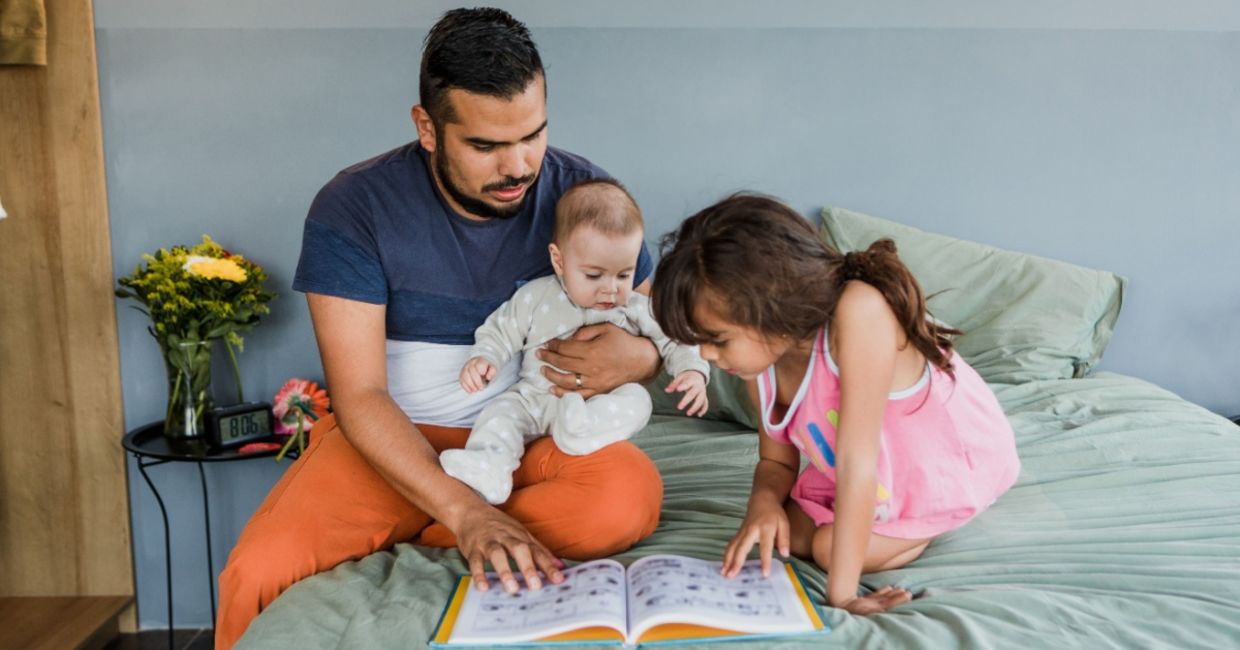
(Marcos Castillo / Shutterstock.com)
There is a unique school in Bogotá, Columbia that doesn’t teach reading and writing. In fact, the school is for adults, not children, and geared for fathers.
Bogotá’s Care School for Men is an innovative and important city-run program that teaches men how to care for their families, from childcare like changing diapers and braiding hair to housework, reported NPR.
The school – the first one in Columbia – is addressing gender inequality head on. In Bogotá, women spend more than five and a half hours on unpaid work every day and that is twice as much as men.
According to a study published in the Journal of Global Health, the unequal distribution of home labor reduces women’s time for education, work, and self-care which increases the rates for female poverty. The care school is dedicated to the idea that this can change.
The care school for men
The city project began in 2021, reported CNN, due to the large volume of calls received from men during the pandemic to a city hotline explaining frustration that they didn’t know how to take care of loved ones after their spouse became ill or died.
But the city officials also saw the school as a way to tackle Columbia’s entrenched machismo – male chauvinism – culture by teaching and encouraging men to contribute their fair share of caregiving and housework. According to the city, the program is having an effect as more men are changing their beliefs about gender roles.
“My mother worked so hard bringing me up and providing for me,” Sergio Rivera, who found the out about the program by chance, told CNN. “But it shouldn’t just be left for women to do. Us men have to play our part.”
The school consists of 24 modules and takes a few months to complete. The topics include: homecare like washing and repairing clothing, caring for newborns, pregnant women, and the elderly, as well as emotional issues like anger management.
There are also pop-up classes that teach baby diapering, hair care, and other caring activities that fathers should know.
Understanding that caregiving is masculine
The school shows that caregiving isn’t something that exists in the DNA of women, that it is a skill that can be learned. The key to success is by showing that caregiving can be masculine.
One group consisted of bus drivers – 95 percent of bus drivers in Bogotá are males – and most of the participants have tattoos, and thick silver chains that reflect their culture.
They are participating in conversations that are designed to change mindsets. Bus drivers were included in the program after the municipality saw an unusually high number of accidents that were attributed to drivers’ frustrations and anger issues.
“I lost my grandmother 15 years ago,” said William Boye, a 31-year-old driver. “I still feel the pain. But the problem is the stigmatization of society. We’re not supposed to show our emotions. We can’t speak about them.”
Many of the men were beaten as children and admit that they did not have good role models on how to be good fathers and husbands. Omar Jimenez, a teacher and trained psychologist who runs classes in the program, explained that given the challenging personal histories of the men, a therapeutic, conversational approach is very effective.
He said: “Men know how to care, just in different ways. Their care is more controlling, disciplined and invasive. It’s better for us to listen to the men and talk with them to help process these emotions. Only then will they really change.”
Since the program began, 7,300 men have attended in-person classes, reported NPR, 50,000 men have completed the online version and 160,000 men have viewed the video series on caring that was put out by the city. This may be a drop in the bucket for a large city like Bogotá but it is growing. Programs like this can be implemented around the globe to help disrupt cultures that believe caregiving is for women only.
YOU MIGHT ALSO LIKE:
5 Ways Dads Make a Huge Difference
7 Ways to Strengthen Father-Son Relationships
Finland Just Gave Fathers 7 Months of Paid Family Leave







